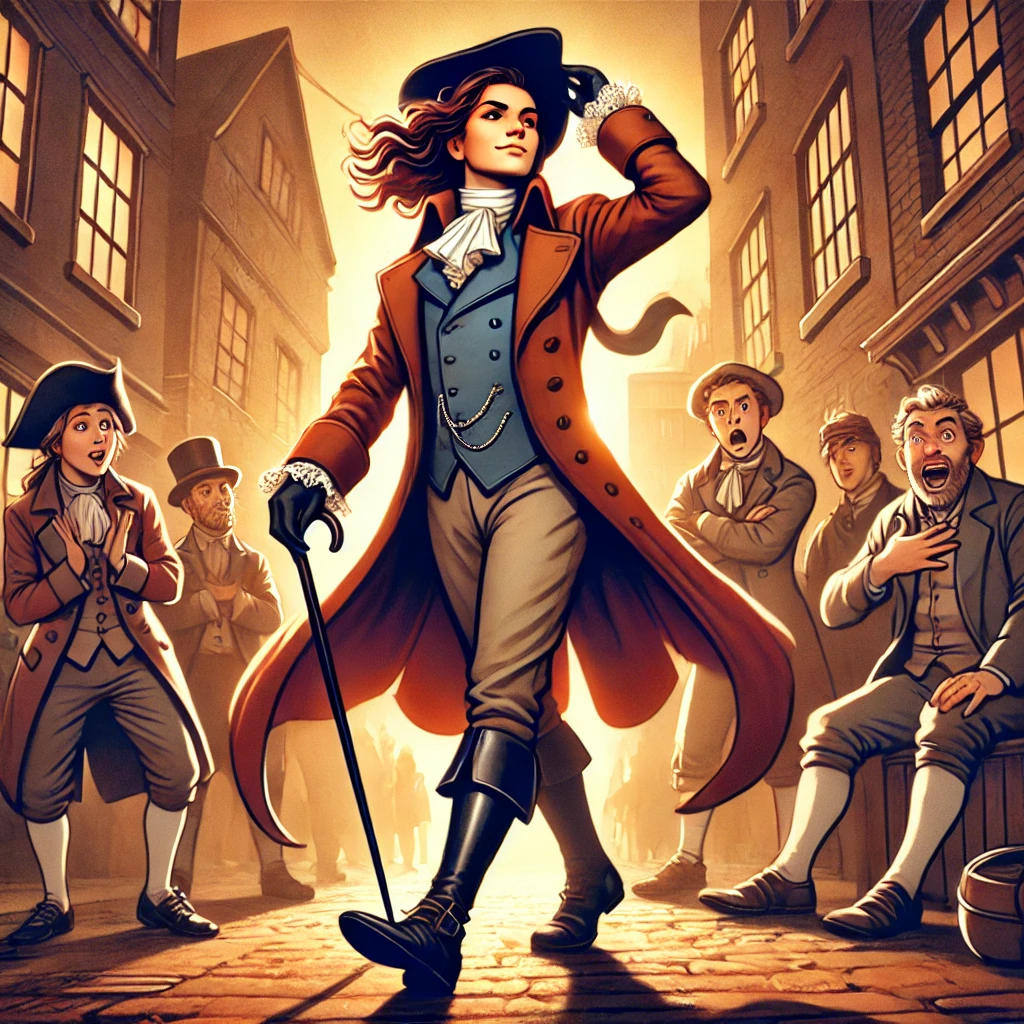
Satire it’s society’s way of saying, “Look how ridiculous this is,” without actually starting a riot. And in Ridiculous by D.L Clark, satire is practically the main character. Millicent Boarder’s decision to live as Mr. North isn’t just a clever plot twist; it’s a critique of the 18th-century’s obsession with class, gender, and societal expectations. Spoiler alert: those expectations are as dumb as they sound.
Millicent’s transformation into Mr. North gives her a front seat to the absurdity of the world around her. Suddenly, with a change of clothes and a bit of bravado, she’s respected, admired, and treated like an actual person. The catch? She had to become a man to get there. The satire writes itself.
The book hilariously highlights the ridiculousness of class divisions and gender roles. As Mr. North, Millicent discovers that all it really takes to rise in society is the right outfit and a confident stride. Suddenly, the same people who wouldn’t give her the time of day as Millicent are bending over backward to cater to her every whim. The message is clear: society is a farce, and the rules that keep people in their “place” are about as real as Millicent’s new identity.
Through humor and irony, the book invites us to laugh at these outdated norms. It’s a satirical smackdown of the idea that your value as a person is determined by your gender or your social class. Millicent’s journey shows us just how arbitrary these divisions are and how easy it is to disrupt them if you’re willing to take a risk and maybe borrow someone’s identity, but that’s a minor detail.
In today’s world, satire is still one of the sharpest tools we have for critiquing society’s flaws. Whether it’s through TV shows, social media, or books, satire allows us to see the absurdity in the systems we live in. It gives us a way to laugh at the rules we blindly follow and, hopefully, start questioning why we’re following them in the first place.
Take, for example, the way we’re still obsessed with appearances whether it’s through fashion, social media filters, or even job titles. We’re still living in a world where people are judged not by who they are, but by how well they play the game. And that’s exactly what Ridiculous skewers. The idea that a change of clothes or a few good lies can elevate someone’s status is both hilarious and deeply sad.
But here’s the good news: satire also shows us the way forward. By laughing at these absurdities, we can start to break them down. We can question why we’re still playing by rules that don’t make sense. And maybe, just maybe, we can start rewriting the script. So next time you find yourself conforming to society’s ridiculous expectations, take a page from Millicent’s playbook. Throw on a disguise, challenge the norm, and most importantly laugh at the absurdity of it all.
Don’t miss out on exclusive content, new book releases, and behind-the-scenes insights. Subscribe to our newsletter and be the first to know about all things Ridiculous and more from D.L. Carter!
Quick Links
Useful Links
Get in Touch with Us
© Copyrights 2024 D. L. Carter. All Rights Reserved